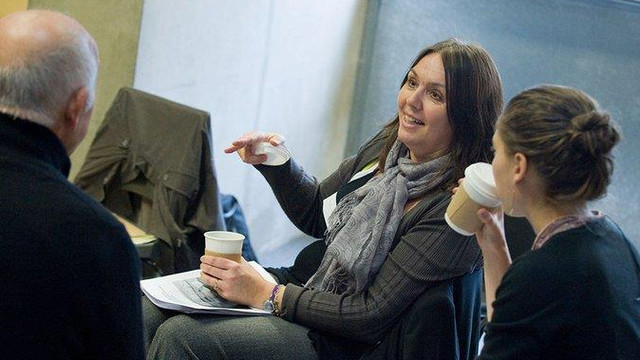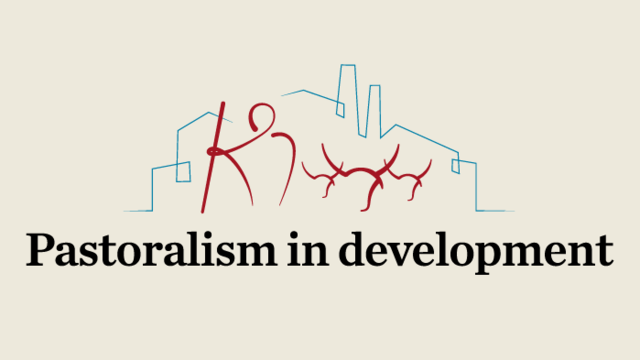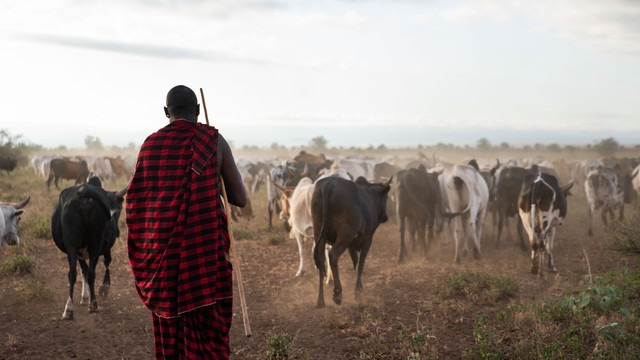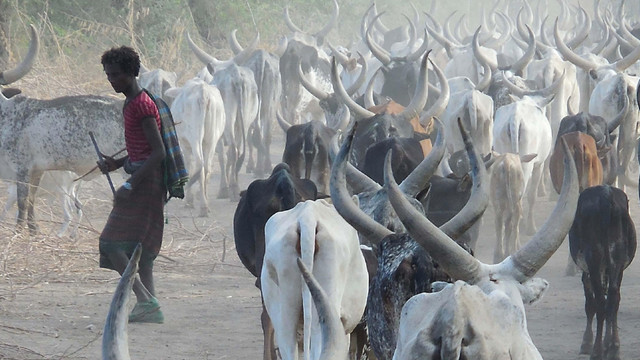Beyond survival – rethinking safety nets for pastoralists in Ethiopia
Pastoralists in Ethiopia are adapting to climatic and political stresses and finding livelihood alternatives. But challenges they face remain poorly understood by policymakers.


Multiple challenges are bringing new opportunities to pastoral women (Photo: Jeff Salzer/PENHA)
Pastoral and agro-pastoral communities around the world are building on centuries-old coping strategies and adopting complementary means of livelihood.
In the Afar region of northeast Ethiopia, an arid lowland area predominantly comprised of pastoralists (90%) and agro-pastoralists (10%), over 95% of the region’s 1.5 million population is dependent almost entirely on livestock production for their livelihoods.
But faced with increasing climatic and political stresses, many pastoralists are becoming semi-sedentary and settling on the outskirts of urban areas.
In some cases, the men are retaining their mobility by taking their livestock to more abundant grazing areas at different times of the year, with women finding new income-generating activities and sending their children to school. Women and young people are rearing and trading small stock, keeping bees to make and sell honey, growing and selling crops, and trading salt and handicrafts.
Livelihoods diversification has been crucial for the survival of many communities across Africa. Persistent droughts since 2008 and the effects of El Niño have resulted in food shortages and malnutrition. Competition over resources and land has restricted grazing areas, leading to conflicts between herders and other land users, with governments adding additional pressure by pursuing policies to promote sedentarisation. In the Horn of Africa, regional insecurity has been blocking seasonal livestock movements and trade routes across national borders for decades.
Despite government support, challenges escalate
The Afar people are incredibly resourceful and known for their strong social bonds and resource sharing among their members through kinship networks of reciprocal solidarity, where the better-off support the poor.
Yet figures show their resilience is being seriously challenged: 14.6 million people in the region are severely food insecure – with an estimated 8.5 million requiring emergency food assistance in Ethiopia.
This is despite government investment in social protection programmes that target chronically food-insecure households, particularly in the rural areas.
The Afar people receive government support during the lean season in the form of food transfers, where they receive wheat for six months of the year under the multi-million Productive Safety Net Programme (PSNP), one of the biggest on the continent.
The PSNP has been running since 2005, providing food and cash transfers to poor households to enable them to resist shocks, create assets and become food self-sufficient. Distribution of the transfers is based on season and need. In exchange for food, besides those under direct support, beneficiaries also engage in public works activities, such as environmental conservation and infrastructure building.
Now in its fourth phase, the PSNP has had variable levels of success, with less of an impact on poverty reduction and food security in remote rural areas, such as the Afar region.
Unmet needs
Recent research carried out by the Pastoral and Environmental Network in the Horn of Africa (PENHA) and its partners has found that the PSNP, despite its contribution to increasing household food supply, is not tailored to meet the needs of nomadic pastoralists in arid regions.
The challenges of these communities are multi-faceted and inseparable from, but not limited to, the current drought. Aside from food shortages, which affect both people and cattle, there needs to be investment in safe and suitable infrastructure, as well as access to sanitary latrines, education and healthcare, local and regional markets, and credit facilities.
Filling the gaps
These pastoral communities are now joining the policy debate and taking control of their destinies to go beyond mere survival. They argue that a one-size-fits-all safety net is not working for them.
Tailored policy options are being considered by the government of Ethiopia to ensure inclusive development in the region, in collaboration with local research institutions. Samara University in the Afar region held its first international research conference in June 2018, with participants underlining the importance of linking research and policies to allow livelihood options to evolve in ways that are most suited to the realities of the Afar pastoral and agro pastoral communities.
The research-policy link is crucial. With its partners, IIED has developed training to help fill the knowledge gap of policymakers – helping them understand the scientific rationale that underpins sustainable pastoralism. Simultaneously we have been building the skills of pastoralists to argue for their inclusion in national policy and get their voices heard.
As shown with the research into social protection, pastoralists have a crucial role to play in bringing their own experiences to the table and inputting into policy decisions.
This blog has been adapted from PENHA’s website.



